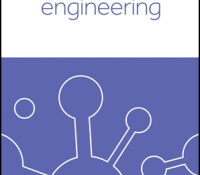eric.ed.gov har udgivet: Recently, the authors have been exploring the use of propensity score methods for developing evidence of program impact. Specifically, they have been developing evidence (after one year of implementation) of the effects of the Math Science Partnership in New York City („MSPinNYC2‟) on high school students‛ achievement–both in terms of course grades and scores on end-ofcourse tests in two key Science, Technology, Engineering and Mathematics (STEM) disciplines: Integrated Algebra and Living Environment. Using an evidence-based approach which relies on propensity score matching, the authors asked if the program in its early stages is making a difference in students‛ academic achievement and college readiness. The „MSPinNYC2‟ program restructures early high school STEM courses to include 6-8 Teaching Assistant Scholars (TAS) who, along with the teachers, facilitate in-classroom group… Continue Reading →
Like this:
Like Loading...
tandfonline.com har udgivet en rapport under søgningen „Teacher Education Mathematics‟: Abstract Formulae display:?Mathematical formulae have been encoded as MathML and are displayed in this HTML version using MathJax in order to improve their display. Uncheck the box to turn MathJax off. This feature requires Javascript. Click on a formula to zoom. Abstract The use of meta-heuristic methods for solving nonlinear engineering and optimization problems is one of the paramount topics that attracted the attention of the researchers. Particle swarm optimization (PSO) is an optimization algorithm which has inspired by birds flocking. However, like other methods, PSO has some disadvantages such as problems in finding the best global minimum or trapping in the local minima in some special problems. In some works, the initial particles are randomly set using uniform or… Continue Reading →
Like this:
Like Loading...
eric.ed.gov har udgivet: As the final stage of West Virginia’s rollout of the Next Generation Content Standards and Objectives (NxGen CSOs), the regional education service agencies (RESAs) conducted six train-the-trainer events in the spring of 2013 to prepare educators–mostly teachers–to provide professional development back in their home schools and districts. These events, called Educator Enhancement Academies (EEAs), lasted two or three days depending on which RESA conducted them, and targeted teachers in grade levels that had not yet received professional development in the NxGen CSOs, that is, Grades 2-3, 6-8, and 10-12. The first phase of this study looked at how well prepared those trainers were at the end of their EEA experience by asking them about their experiences during the training and after they, themselves, conducted training sessions during… Continue Reading →
Like this:
Like Loading...
eric.ed.gov har udgivet: This paper explores two foundation phase teachers‛ example spaces (a space in the mind where examples exist) when teaching number-related topics in relation to snapshots of their content knowledge (CK). Data was collected during a pilot primary maths for teaching course that included assessments of teacher content knowledge (CK). An analysis of a content-knowledge focused pre-test developed for the larger study indicated a relatively high score for one teacher and a low score for the other. Using Rowland’s (2008) framework, an analysis of classroom practice showed associations between a higher CK and the extent of a teacher’s example space and more coherent connections between different representational forms. Although no hard claims or generalisations of the link between teachers‛ example spaces and their level of mathematics content knowledge… Continue Reading →
Like this:
Like Loading...
